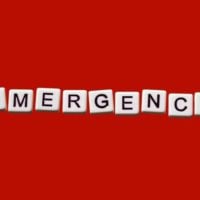Deadline: 18 June 2020
The European Union (EU) has announced a call for proposals for “CSOs Capacity-building Mechanism” in Turkey.
The specific objective(s) of this call for proposals is to have the organizational and institutional capacities of the CSOs reinforced and their long-term strategic development enhanced. This will be pursued through the provision of a set of capacity building activities, such as trainings, coaching, studies, customized helpdesk as well as legal and regulatory advice. This action also aims at having the legal and political environment in which CSOs operate regularly monitored.
The proposed action should respect the rights-based approach (RBA) methodology and give special importance to cross-cutting issues such as promotion of gender equality, human rights, freedom of expression, children’s rights etc.
The priority of this call is to have increased capacity of civil society organisations to carry out right-based actions and to effectively network and be engaged in joint-actions.
Funding Information
- The overall indicative amount made available under this call for proposals is EUR 3.000.000. The contracting authority reserves the right not to award all available funds.
- Size of grants:
- Minimum amount: EUR 2.950.000
- Maximum amount: EUR 3.000.000
Duration
The initial planned duration of an action may not be lower than 36 months nor exceed 46 months.
Location
Actions must take place in Turkey, except for specific, occasional and duly justified actions as long as they contribute to the achievement of the objectives of the call.
Eligibility Criteria
Lead Applicant(s)
- In order to be eligible for a grant, the lead applicant must:
- Be a legal person and;
- Be non-profit-making and;
- Be a civil society organisation and;
- Be established in a Member State of the European Union or a beneficiary country of the IPA II or a member state of the European Economic Area (EEA).
- For UK applicants: Please be aware that following the entry into force of the EU-UK Withdrawal Agreement on 1 February 2020 and in particular Articles 127(6), 137 and 138, the references to natural or legal persons residing or established in a Member State of the European Union and to goods originating from an eligible country, as defined under Regulation (EU) No 236/201415, are to be understood as including natural or legal persons residing or established in, and to goods originating from, the United Kingdom. Those persons and goods are therefore eligible under this call:
- Be directly responsible for the preparation and management of the action with the co-applicant(s) and affiliated entity(ies), not acting as an intermediary.
Co-applicant(s)
- The co-applicants should have previous experiences in the civil society sector to allow them to actively contribute to the aim of the action. The lead applicant must act with maximum two co-applicants.
- Co-applicants participate in designing and implementing the action, and the costs they incur are eligible in the same way as those incurred by the lead applicant.
- Co-applicants must satisfy the eligibility criteria as applicable to the lead applicant himself.
Affiliated Entities
- The lead applicant and its co-applicant(s) may act with affiliated entity(ies).
- Only the following entities may be considered as affiliated entities to the lead applicant and/or to coapplicant(s):
- Only entities having a structural link with the applicants (i.e. the lead applicant or a co-applicant), in particular a legal or capital link.
- This structural link encompasses mainly two notions:
- Control, as defined in Directive 2013/34/EU on the annual financial statements, consolidated financial statements and related reports of certain types of undertakings:
- Entities affiliated to an applicant may hence be:
- Entities directly or indirectly controlled by the applicant (daughter companies or first-tier subsidiaries). They may also be entities controlled by an entity controlled by the applicant (granddaughter companies or second-tier subsidiaries) and the same applies to further tiers of control;
- Entities directly or indirectly controlling the applicant (parent companies). Likewise, they may be entities controlling an entity controlling the applicant;
- Entities under the same direct or indirect control as the applicant (sister companies).
- Entities affiliated to an applicant may hence be:
- Control, as defined in Directive 2013/34/EU on the annual financial statements, consolidated financial statements and related reports of certain types of undertakings:
- Membership, i.e. the applicant is legally defined as a e.g. network, federation, association in which the proposed affiliated entities also participate or the applicant participates in the same entity (e.g. network, federation, association,…) as the proposed affiliated entities.
For more information, visit https://bit.ly/2TPiF4V









































